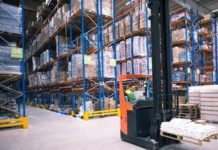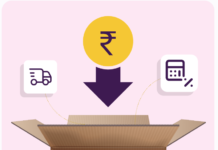
By: Abhilash Reddy Yerasi
According to research reports, expenses incurred by the logistics industry currently account for 14% of the GDP of India, a figure higher than other developing nations. The reason is high transportation costs, minimum integration of information technology in the infrastructure and poor material handling methods.
Consequences include lack of customer satisfaction and poor inventory control and manpower deployment.
Artificial Intelligence in logistics
Artificial Intelligence (AI) is an area of computer science that creates intelligent or automated machines to tackle some of these problems. At the very least it can help to analyze the bottlenecks and constraints in a given system.
Booking orders – An AI bot1 can be used to read emails and classify them according to departments for example if a booking order is made via a bot, an automated tool can book the shipment and forward the to the appropriate operations team or teams and periodically enquire if action has been taken.
Reduces manual work – Any escalations in the supply chain can also be dealt with by AI, which can route the emails to concerned departments so that escalation management is done within the agreed service-level agreements (SLAs) and estimated time of arrivals (ETAs). This can save approximately half of the manual work.
Monitor sales – AI can also be used to draw up a mathematical relation between variables and the target. This predictive analysis can be used to monitor sales. Generally, sales leads are managed and monitored in customer relationship management (CRM) systems. With AI, it is possible to predict the likelihood of converting a lead into a sale, which will help predict the future revenue of the organization and improve weak leads.
Freight prediction – AI can also be used for freight prediction, which is normally tricky as factors like road conditions, zones, weather conditions and seasons affect freight movement. Manual prediction is tedious while machine learning can be used to simplify the estimates. Machine learning is the part of AI that recognizes patterns in data and makes observations. It can be used to make accurate predictions after analyzing the effect these factors have on freight movement.
Major costs are incurred during the transportation of freight, which is a time-bound process. By implementing AI, costs can be cut by predicting the shortest and quickest routes after analyzing real-time traffic, capacity planning, and delivery schedules.
Driver safety – During transportation, the safety of drivers is extremely important. A study by the Central Road Research Institute states that 40% of accidents are caused by exhausted drivers who sleep at the wheel. Computer Vision, which helps computers see and understand digital images, can be used to improve driver and road safety. A security camera can be implanted in the driver’s cabin, which will ring an alarm if his eyelids close beyond a specified time.
Delivery – The last phase of transportation, last-mile delivery, has a direct impact on the customer experience. Normally, a customer service executive monitors the process and predicts the ETA based on available dynamic data. With AI, it will be possible to leverage all data platforms and create datasets that will regulate patterns and anomalies. Artificially intelligent drones can also be used in some cases to improve last-mile delivery.
Saves time in acceptance process – After the cargo is delivered to the customer, it is checked for any damage that might have occurred during transit. If the damage is within permissible limits, the customer will accept the cargo. If it is beyond these limits, it will have to undergo a predefined process that requires multiple approvals. This leads to a decision-making gap. Computer vision can be implemented to train the model to tell if the damage is within feasible limits or not, hence, saving valuable time.
If AI is implemented in all stages of the supply chain, a significant decrease will be seen in the expenses incurred by the logistics industry.
Abhilash Reddy Yerasi is a manager – Implementation and Analytics at Ezyhaul. Bengaluru-based Ezyhaul, founded in 2016, is a log-tech startup company. It has offices in Singapore, Malaysia and Thailand. Recently, the company has received a series B funding of US$ 16 million (approximately 100 crore) to further grow its digital freight and logistics management solution in South Asia.
Glossary
1A bot or chat robot is a computer program that simulates human conversation or chat through artificial intelligence
IndiFoodBev — authentic, impactful and influential
An English-language food and beverage processing and packaging industry B2B platform in print and web, IndiFoodBev is in its third year of publication. It is said that the Indian food and beverage industries represent approximately US$ 900 billion in revenues which implies more than 20% of the country’s GDP. Eliminating the wastage on the farmside can help to deliver more protein to a higher number of the population apart from generating sizable exports. The savings in soil, seeds, water, fertilizer, energy and ultimately food and nutrition could be the most immense contribution that country is poised to make to the moderation of climate change.
To improve your marketing and grow sales to the food and beverage processing and packaging industry, talk to us. Our research and consulting company IppStar [www.ippstar.org] can assess your potential and addressable markets in light of the competition. We can discuss marketing, communication, and sales strategies for market entry and growth.
Suppliers and service providers with a strategy and budget for targeted marketing can discuss using our hybrid print, web, video, and social media channels to create brand recognition linked to market relevance. Our technical writers are ready to meet you and your customers for content.
The second largest producer of fruit and vegetables in the world is continuously expanding processing capacities and delivery systems with appropriate innovative technologies. We cover product and consumer trends, nutrition, processing, research, equipment and packaging from farm to thali. Get our 2025 media kit and recalibrate your role in this dynamic market. Enhance your visibility and relevance to existing markets and turn potential customers into conversations. Ask for a sample copy of our bi-monthly in print or our weekly IndiFoodBev eZine each Wednesday.
For editorial info@ippgroup.in — for advertisement ads1@ippgroup.in and for subscriptions subscription@ippgroup.in
Naresh Khanna – 10 February 2025
Subscribe Now











The idea of using artificial intelligence and bot in logistics really mesmerizes me. There is a lot of potential technological up-gradation that has been taken place in this industry in the past few years. In order to stay ahead of the competition, one needs to continuously innovate in this industry. I really liked the way you have explained this article in such a simple and easy to understand format. Thank you.